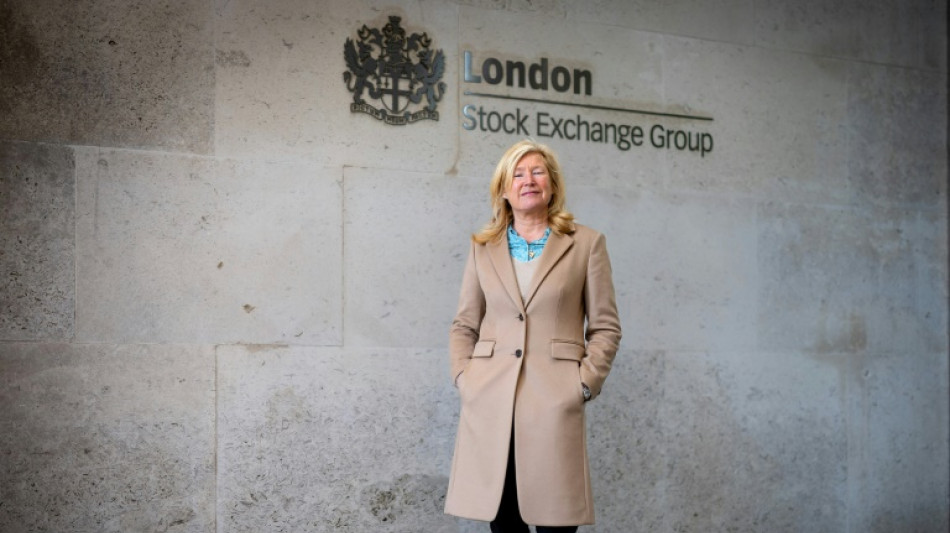

UK initiative pushes for more women to head FTSE-100 firms
Two years ago Tara Cemlyn-Jones, a former investment banker who helped in the financing of start-ups including lastminute.com, returned to the UK after years spent abroad.
She was struck by the progress of women in several sectors, especially politics, but also by the low numbers of female business leaders.
Cemlyn-Jones' organisation 25x25 wants to change that and has set itself an ambitious target: to get 25 women at the head of the 100 biggest businesses in the UK by 2025.
Currently there are just nine female chief executives on the FTSE-100, the index of leading firms on the London Stock Exchange.
Two years ago, it was six percent. But in the wider FTSE-350 index, the figure is even worse -- just five percent.
On Wall Street, female chief executives make up six percent of the S&P 500 while in France, there are currently three women heading firms listed on the CAC-40.
"We specifically wanted to tackle the CEO position because we felt it was the only way to get women into the executive stream compared to non-executive positions where a lot of work has already been done," Cemlyn-Jones told AFP ahead of International Women's Day.
One recent study showed that in the last 10 years women's representation on the boards of FTSE-100 companies had jumped from 12.5 percent to 39.1 percent.
"Women are already in the system, they're just not making it to the role of CEO," Cemlyn-Jones said.
- No quotas -
In France, which has been leading the way, 43.8 percent of posts on the boards of CAC-40-listed companies are women.
That followed legislation which imposed a quota of at least 40 percent.
"In the UK there hasn't been a tradition of imposed quotas," said Cemlyn-Jones.
Yet the country has still more women on boards than countries such as Norway, which pioneered such quotas, and is currently third behind France and the UK on 38.2 percent.
UK progress has notably been spurred by government statistics and reports, which have been put in the public domain, which have forced companies to act.
But for Cemlyn-Jones, for women's progress to bear fruit, they need to be in decision-making roles.
"At the N-2 level you have a lot of very qualified women," she said.
"They are not making it to CEOs because maybe they haven't been given the right opportunity at the right time.
"If you're head of a profit centre you may be better equipped and have more chance to become CEO" than a woman who is a company secretary, she added.
"Part of our process is to make sure women are given the opportunity to be on those pathways," she explained.
- Plan of succession -
25x25 current has 20 members and plans to add 30 more soon.
They include the oil giant BP, NatWest bank, headed by Alison Rose -- so far the first and only woman to head a bank in the City -- Unilever, GSK, BAE Systems and ITV.
Companies signed up promise to work towards parity and more broadly for diversity.
"These are companies that are believing they are not getting the best of their talent, and ESG (environmental, social and corporate governance) has become more important of an issue," said Cemlyn-Jones.
Members have to prepare a plan which takes into account its female workforce, with career paths that qualify for the chief executive role, plus targets, monitoring and support.
"It needs to be sustainable for 10 years," she said, to ensure the possibility of a female line of succession for generations to come.
"It has to be the CEO that takes responsibility because it has to come from the top," she added.
Jennie Daly in February became the first woman to head up a UK housebuilding company when she was appointed chief executive of Taylor Wimpey, joining Irene Dorner who has been head of the board since 2020.
"Another good example is Leena Nair, CEO of Chanel," she added.
Nair was former head of human resources at Unilever before joining the French luxury goods and fashion house.
A.Uggeri--IM



